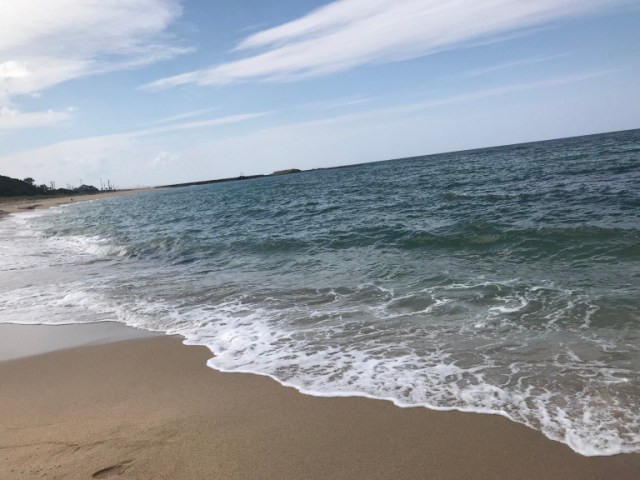
What’s the harm in pinching a tiny bit of seaweed? Quite a lot, as our Japanese-language reporter learned.
Our Japanese-language reporter Ikuna Kamezawa was out on a trip to the beach. As she walked by the cresting waves, something washed up right at her feet… A wriggly piece of seaweed.
Delighted by her new friend, Ikuna bent down to pick it up. Just one little piece of seaweed, right? Who would care if she took it away with her as a memento? That question was answered with blistering speed as an angry voice rang out behind her. “Don’t you dare take that!”
Ikuna whipped her head around to see an angry elderly woman, who appeared to be a resident from the nearby fishing village. Our reporter guiltily made her apologies, while inwardly wondering: Why couldn’t she take one tiny strip of seaweed? Was it that big of a deal? Who was this old woman to tell her off, anyway?
For context, Ikuna herself grew up on the coast of the Sea of Japan and knew well that the various shellfish, like turban shells and abalones clinging to the shoreside rocks, were off-limits to ordinary residents like her. She even remembered the constant monitors who patrolled the coast, ensuring that no one made off with any illegal mollusks. But seaweed? Who put restrictions on picking up seaweed…other than old women wandering around on the beach?
Her guilt transformed into righteous anger, Ikuna decided this was worth investigating. “After all,” she felt passionately, “the sea shouldn’t belong to any one person.” Buoyed by her new conviction that she had the right to pick up whatever detritus she found on the beach, she made a call to the Fisherman’s Cooperative Association in the hopes of proving her point.
▼ The interview was held in the Tottori branch of the association, opposite Karo Port (famous for their delicious crab).
Thanks to the ease with which she procured her interview, and the soft voice of the representative, Mr. Furuta, she’d talked with on the phone, Ikuna was fairly confident she would have the fisherman’s association agreeing with her seaweed pinching proclivities in no time.
▼ Mr. Furuta in all his glory.
He nodded calmly as Ikuna explained what had happened to her at the beach.
Ikuna: …And yeah, so, that’s what happened. But the sea belongs to everyone, doesn’t it?
Furuta: Ah, yeah. I think it’s common for members of the public to feel like the ocean shouldn’t just belong to fishermen. There’s actually a law, though, in Japan, called the “Fisheries Act”. It was enacted some time after the Edo period but before World War II, so it’s quite old. They haven’t changed it at all in all that time, though. The main law is the same throughout all of Japan, but individual places and prefectures tweak parts to suit their needs.
Ikuna: The law’s that old?! Doesn’t that mean it’s obsolete nowadays?
Furuta: Not at all. It’s a robust law, so the core tenets of it have lasted all this time. People rely on fish to live, so it’s natural that neighboring villages might end up in conflict over fishing. That’s why there’s this agreement between fishing villages. It’s not good at all for a select number of people to overfish…and even in the old days we wanted to make sure that the fish environments themselves are protected, so those fish can have children and then grandchildren. The main point of the Fisheries Act is to keep things sustainable, that’s why it’s agreed upon all over Japan.
Ikuna considered this, then rolled up her sleeves and readied her pointing finger.
Ikuna: Objection! If the ocean’s available for everyone, doesn’t that make it weird that only fishermen can go out in it to fish? That’s a contradiction!
Furuta: I can see why you’d think that. In this very building you can apply for a license to become a “fisherman”, which entitles you to go catch fish that ordinary members of the public are forbidden from catching. Once you become a fisherman, though, you are held responsible for what we call “voluntary sea management”…[in which] we encourage fishermen to regulate and protect their own fishing spots, in order to prevent overfishing and to stop aquatic resources from drying up.
It’s equally important to protect against problems with recreational fishers and swimmers. And of course, there are even people who come to the sea to poach.
According to Furuta, fishing can be divided into three classifications:
1. Fisheries with “Fishery Rights”
2. Licensed Commercial Fishing
3. Free Fishing
This may sound a little vague, so for the sake of clarity Ikuna further defines it like this:
“1 and 2 can be performed by licensed fishermen. 3 can be performed by individuals.”
So what’s covered by “Free Fishing”?
Furuta: “Fishing rights” don’t apply to things that can swim. If a fish were to swim to another village, nothing could be done about it. What’s off-limits are the things that can’t swim. We call such things “fixed resources”.
Ikuna: So that’s why we can’t pick up any shellfish?
Furuta: Not exactly. There’re many kinds of shellfish out there. The ones affected by law are the ones that fishermen rely on for their way of life. Take, for example, a limpet or something like it that you might find on a rock. Limpets can’t be distributed or managed like other produce, so the law doesn’t affect them.
Ikuna: So how can you tell which ones are okay to pick?
Furuta: There’ll be a sign by the shore telling you, like, “This coast has Type 1 Fishery Rights and as such the collection of (x), (xx) and (xxx) is prohibited.” Things like common orient clams are usually prohibited. Sea snails tend to be okay in most places. There’s only one coast section out of the five in Tottori where you can’t pick those up. As for mussels, they’re considered a valuable commercial resource in the Chubu region, so free fishers can’t harvest them in Aichi, Fukui, Ishikawa, Niigata, Shizuoka, or Toyama Prefectures. However, there’s no custom of eating them in Shimane Prefecture so they aren’t protected there at all. The sea and its culinary traditions vary a lot over even tiny distances.
Ikuna: How about wakame seaweed? Or kelp?
Furuta: You can’t take those from anywhere, basically. As far as other types of seaweed are concerned it depends on the place. Nori, tengusa and igisu seaweed… Akamoku’s been hot recently, too. Fishermen used to hate it because it would grow in such quantity that it covered the water’s surface, but then it got popular. Even Tottori harvests about 50 tons of akamoku seaweed each year. The fishermen never cut it from the root, they cut it from about halfway down, so it can grow back. If you take it all ’cause it sells great one year, it won’t be around for the next… And it’s hard for individuals and general companies to keep it safe, which all means that only fisheries are licensed to harvest it.
Every five years we run a check on the target species of seaweed to monitor growth, but other species aren’t subject to the law. What was the seaweed you had an issue with, Ms. Kamezawa? What color was it? How did it look? Where did you find it?
At this point Ikuna realized she was less an impressive lawyer grilling a suspect with incisive questions, and more a sweating witness on the stand about to combust. “That incident’s already been dealt with,” she said grandly, putting an end to any more seaweed speculation.
▼ L-R: Limpet, Korean mussel, chlorostoma lischkei sea snail
Ikuna still had more specific questions about what was legal to catch, though:
Ikuna: So can any ordinary person just go out and catch any fish?
Furuta: If you’re catching it with a rod, then yes, anything goes. But if you’re deep-diving with gas cylinders and dragnets and all that? It’d be bad news if just any individual could do that. I recommend becoming a member if you want to fish that way. We can’t just give blanket permission when someone asks, “Can I fish for this kind of breed, at this time, at this place, with this equipment?”
In general, catching with your bare hands is fine; using a gill net isn’t. Spearguns are also off-limits.
Ikuna: Can any person willing to pay money become a fisherman, then?
Furuta: Each area has its own qualification review committee. If too many people get licenses, the system breaks down. There’s a very complicated examination process. They’ll thoroughly evaluate you, and if they think you’re a good fit, then you will pass.
Ikuna: What if someone wants to legally pick up abalone or turban shells?
Furuta: There’s no way for them to do that unless they become a member of the union.
Ikuna: Could I do that?
Furuta: You could become an “ama” (female diver) if you wanted to. Lots of young women work as ama these days in Tottori. One was a complete novice when she started and then gained experience over a year of diving, which will helped her to study for the test. Then she got her qualification. She might even be diving right now.
▼ A list of fishing rights levels, adorned with some cute doodles.
Ikuna: So if you want to catch abalone, you really have no choice but to become a fisherman.
Furuta: Right. And we have this agreement, “Please unload a catch on 90 days out of a year.” It won’t do for someone to just come around for fun, catch a little fish when they want to, then stop. Basically, you must become a source of fish for the average consumer. Those who can’t, please just stick to the things you can catch as an individual. There’re lots of opportunities to fish. Right now it’s squid fishing season, so whenever night falls the water is full of fishing boats. All those people are just regular consumers.
Ikuna: Huh?! Is that allowed?
Furuta: It is. It’s free fishing, like I mentioned.
Ikuna: Are those people allowed to fish up enough to sell, and make a business out of it?
Furuta: Certainly. We even get people coming here with fish, saying, “I caught too many so could you buy this off of me?” There are all kinds of recreational fishing boats that carry customers, and you can fish up as much horse mackerel or flounder as you like.
Ikuna: What about tuna?
Furuta: Tuna has international sanctions on it…so yeah, you can’t catch tuna. When you’re fishing for things like marlin and so on, you call it “trawling”. You might have seen old actors on TV, trawling on their personal cruisers. Those are licensed fisheries.
Throwing realism aside for a moment, fishing rights start about 1.5 kilometers (0.9 miles) out from the shore. Up until that point the waters are unregulated, so you can fish there as an individual. However the water there is 30 meters (98 feet) deep. Diving with gas cylinders isn’t allowed, but if you can make it down there by just diving regularly, you’re welcome to whatever you catch.
Ikuna mulled over this payload of information very carefully. She’d been sorely mistaken – far from greedily hoarding the ocean’s bounties for themselves, fishermen were actually protecting the ocean! They didn’t even eat the abalone they caught for themselves! Which, she admitted, made sense. It wasn’t as though you would expect a farmer to eat his fill of free rice from his crop yield.
Perhaps, she considered, the problem was that it was easy to imagine making rice and all its inherent difficulty. Fishing, though? That has a much more relaxed image, and so it’s easy to imagine fishermen taking the best spoils for themselves, but really, the weight of the fishing trade rests on their sea-salted shoulders.
Her anger at the seaweed incident had dissipated, and her false ideas about “fisherman privilege” had been thoroughly dispelled. But Ikuna was fascinated by the topic now, and so she asked Furuta what other problems plague fishermen. Mr. Furuta was happy to indulge her curiosity and started with a fisherman’s greatest foe: the common poacher. These are people who steal fish and marine products without licenses or permission.
Furuta: This very year we had a group come in from out of the prefecture for a barbecue, and they had five or maybe six turban shells they’d caught. They were charged for discovering those. We get people like that every summer. Five to six turban shells, that’s not so bad, you might think, but no it’s more than can be allowed. Like, you’ll be written about in the paper and prosecuted for that many. They pop up over and over. It’s so annoying. Then we have to fine them. But they aren’t as bad as the people who do it systematically. They come at night with submarines and flush out huge amounts of abalones or sea cucumbers… It’s not such a big problem in Tottori, but in Shimane and Yamaguchi, it’s enough to make your head hurt.
Taking those things is poaching, and it’s a crime. Like, if you come using gas cylinders to catch abalone in Tottori you will actually be charged for two crimes. First is the general fishery rights violation. Second is the prefectural charge, the Tottori fishing regulation violation. You can go to jail here for that, and there are fines to the tune of several million yen. It used to be fixed at 200,000 yen, with the logic that it’s about the same as what you’d pay for ten tax installments, but the other prefectures have inflated it accordingly as a countermeasure.
Ikuna: Do the punishments really need to be that strict?
Furuta: Strict judgement in the rare cases we have dissuades other people from doing it too. If you find someone who seems like they’re poaching a target species you’ll accuse them of it, at the very least. That serves as your benchmark. You can say, “It’ll go on your criminal record.” I think there’s an attitude that fishermen are petty, but it’s only them doing their duty of keeping their waters safe.
Not only that, but around half the living population of abalone in Tottori right now are abalone that fishermen released back into the water. About 80-90 percent of the ones caught are released. Those that are released have a different color, so it’s easy enough to tell. Same with turban shells.
Ikuna: That’s a waste, isn’t it?
Furuta: I teach the fishermen how to release them back into the water, but I get mad if they’re sloppy about it. You have to consider nature’s role in this. If you leave it to nature, there’ll be years when all of them get caught and years where none do. We have to keep things stable, and once an area’s depleted we have to leave it alone until it recovers. The seaweed that abalone and turban shells feed off of is decreasing due to global warming, so fishermen go down there and plant more of it. That’s why we release fish back, too. We’re doing our best to manage the ecosystem with artificial intervention. You cultivate fish, protect its habitat, bring the big ones onto shore to sell. Then you use that same money to buy fish. So if the average consumer were to interrupt that cycle by fishing up all the big fish, we’d get angry! The things we fish up are like our properties, and violating the fishing right is like theft.
Ikuna: Are there specific people who watch out for poachers on the beach?
Furuta: There are! I think some people believe we union members are always patrolling for poachers as we live our lives. We actually tell people that if they see someone suspicious, don’t try to apprehend them by yourself. Call for security, or alert the police. The police in fishing villages are acutely aware of fishing rights, so they’ll be on the scene quickly to investigate. It’s fine if it turns out they weren’t a poacher. The police will just apologize and leave them be. But if they find you with even one turban shell…that’s a big, big deal.
Each area also has its own rules about what fish can be caught, how many, when and where. We have to consider how the fish are spawning too, and their growth cycles, so we can’t take any risks. Fishermen aren’t only trying to catch regular citizens at these violations, they keep each other in check, as well.
I, myself, loved the sea as a young boy. I used to wish I could dive in the ocean like the fishermen did. But then, working this job, I came to realize that the fishermen were protecting the sea, and so I didn’t feel angry or resentful towards them anymore.
Maybe all this information has helped you too put the fishing industry into perspective, just like it did for Ikuna. As Furuta said, it’s a lot harder to get angry at someone telling you off for poaching when you realize how difficult it is to monitor and take care of even a small portion of the ocean. And it only takes so many people thinking “No one will mind if I take this” before all of it is gone.
Images © SoraNews24
● Want to hear about SoraNews24’s latest articles as soon as they’re published? Follow us on Facebook and Twitter!
[ Read in Japanese ]

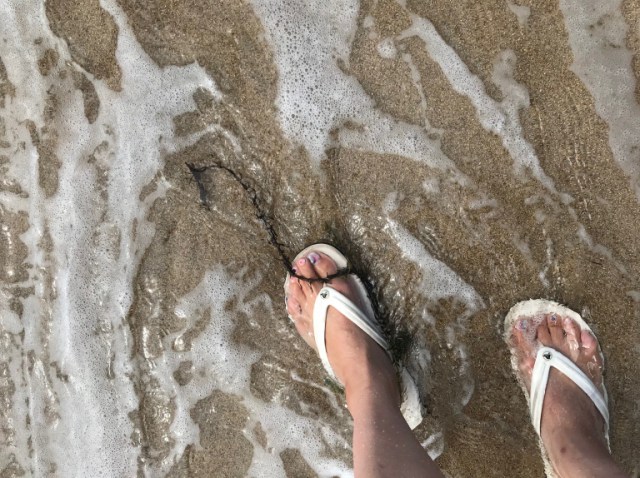
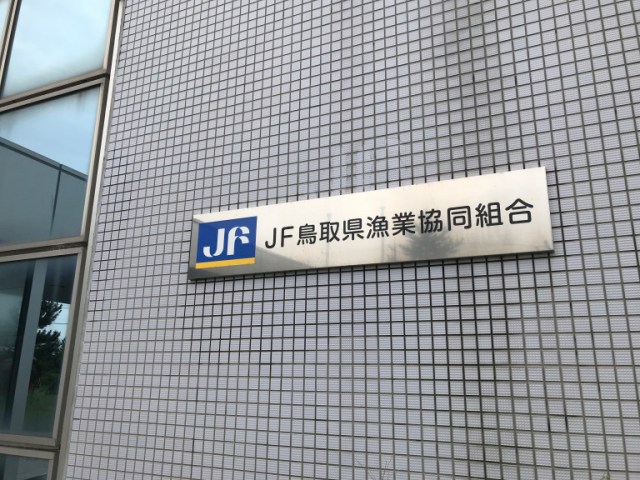
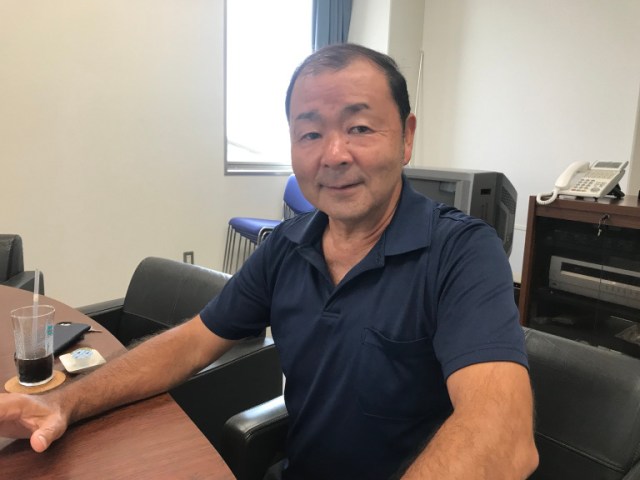

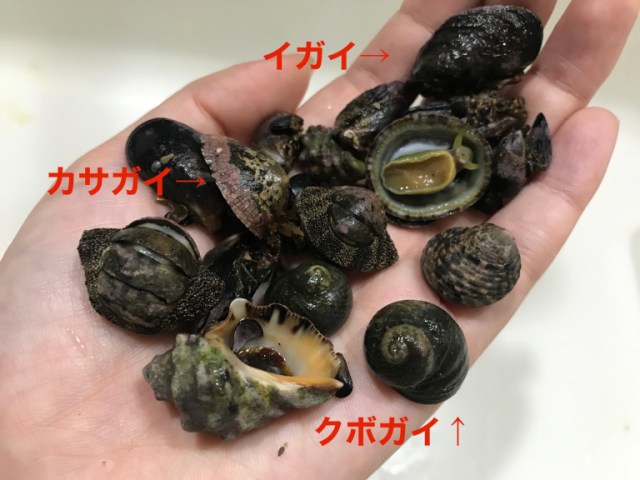
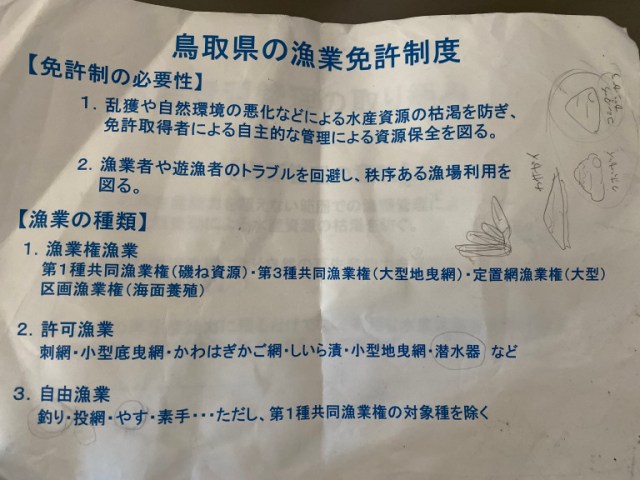

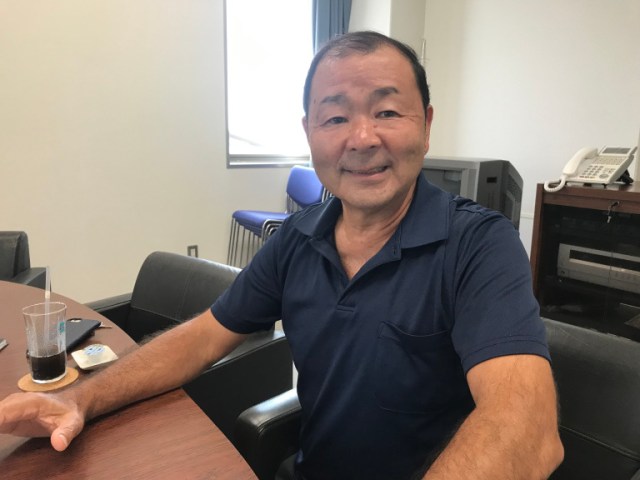
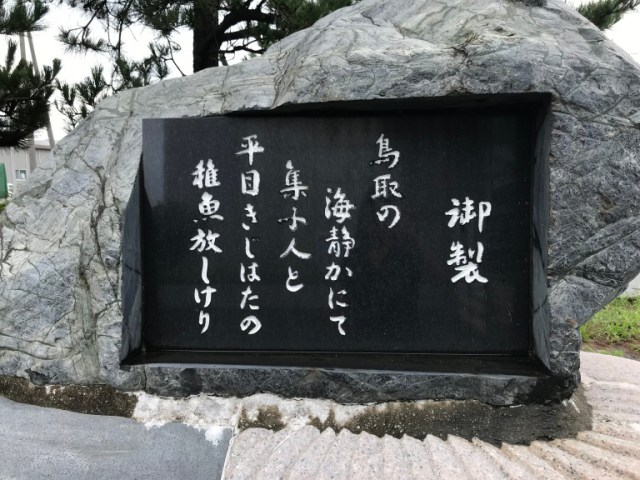
 Highest Starbucks in Japan set to open this spring in the Tokyo sky
Highest Starbucks in Japan set to open this spring in the Tokyo sky Survey finds that one in five high schoolers don’t know who music legend Masaharu Fukuyama is
Survey finds that one in five high schoolers don’t know who music legend Masaharu Fukuyama is Japan has trams that say “sorry” while they ride around town…but why?
Japan has trams that say “sorry” while they ride around town…but why? Starbucks Japan complexly raises prices, will now charge for takeout bags
Starbucks Japan complexly raises prices, will now charge for takeout bags Department store rooftop in Tokyo is a secret oasis above the city
Department store rooftop in Tokyo is a secret oasis above the city Highest Starbucks in Japan set to open this spring in the Tokyo sky
Highest Starbucks in Japan set to open this spring in the Tokyo sky Survey finds that one in five high schoolers don’t know who music legend Masaharu Fukuyama is
Survey finds that one in five high schoolers don’t know who music legend Masaharu Fukuyama is Japan has trams that say “sorry” while they ride around town…but why?
Japan has trams that say “sorry” while they ride around town…but why? Starbucks Japan complexly raises prices, will now charge for takeout bags
Starbucks Japan complexly raises prices, will now charge for takeout bags Department store rooftop in Tokyo is a secret oasis above the city
Department store rooftop in Tokyo is a secret oasis above the city Oh Boy, That’s Pretty Racist (Part Two): Japanese woman explains why Taiwanese girls suck
Oh Boy, That’s Pretty Racist (Part Two): Japanese woman explains why Taiwanese girls suck 7 great places to see Mt. Fuji from without having to climb it
7 great places to see Mt. Fuji from without having to climb it Here are the top ten foodie factory tours for the fall throughout Japan
Here are the top ten foodie factory tours for the fall throughout Japan Kagoshima conveyor belt sushi chain Mekkemon rises above the rest with its special secret weapon
Kagoshima conveyor belt sushi chain Mekkemon rises above the rest with its special secret weapon Psyduck teapot produced by Japanese craftspeople is here to serve up a headache-soothing cuppa
Psyduck teapot produced by Japanese craftspeople is here to serve up a headache-soothing cuppa The 10 most annoying things foreign tourists do on Japanese trains, according to locals
The 10 most annoying things foreign tourists do on Japanese trains, according to locals Starbucks Japan releases new sakura goods and drinkware for cherry blossom season 2026
Starbucks Japan releases new sakura goods and drinkware for cherry blossom season 2026 Is Sapporio’s Snow Festival awesome enough to be worth visiting even if you hate the snow? [Pics]
Is Sapporio’s Snow Festival awesome enough to be worth visiting even if you hate the snow? [Pics] Tokyo Skytree turns pink for the cherry blossom season
Tokyo Skytree turns pink for the cherry blossom season Japan’s new “Cunte” contact lenses aren’t pronounced like you’re probably thinking they are
Japan’s new “Cunte” contact lenses aren’t pronounced like you’re probably thinking they are Shibuya Station’s Hachiko Gate and Yamanote Line stairway locations change next month
Shibuya Station’s Hachiko Gate and Yamanote Line stairway locations change next month Yakuzen ramen restaurant in Tokyo is very different to a yakuza ramen restaurant
Yakuzen ramen restaurant in Tokyo is very different to a yakuza ramen restaurant Starbucks Japan adds new sakura Frappuccino and cherry blossom drinks to the menu
Starbucks Japan adds new sakura Frappuccino and cherry blossom drinks to the menu Japan’s newest Shinkansen has no seats…or passengers [Video]
Japan’s newest Shinkansen has no seats…or passengers [Video] Foreigners accounting for over 80 percent of off-course skiers needing rescue in Japan’s Hokkaido
Foreigners accounting for over 80 percent of off-course skiers needing rescue in Japan’s Hokkaido Super-salty pizza sends six kids to the hospital in Japan, linguistics blamed
Super-salty pizza sends six kids to the hospital in Japan, linguistics blamed Starbucks Japan unveils new sakura Frappuccino for cherry blossom season 2026
Starbucks Japan unveils new sakura Frappuccino for cherry blossom season 2026 Foreign tourists in Japan will get free Shinkansen tickets to promote regional tourism
Foreign tourists in Japan will get free Shinkansen tickets to promote regional tourism Take a trip to Japan’s Dododo Land, the most irritating place on Earth
Take a trip to Japan’s Dododo Land, the most irritating place on Earth Naruto and Converse team up for new line of shinobi sneakers[Photos]
Naruto and Converse team up for new line of shinobi sneakers[Photos] Is China’s don’t-go-to-Japan warning affecting the lines at a popular Tokyo gyukatsu restaurant?
Is China’s don’t-go-to-Japan warning affecting the lines at a popular Tokyo gyukatsu restaurant? Survey asks foreign tourists what bothered them in Japan, more than half gave same answer
Survey asks foreign tourists what bothered them in Japan, more than half gave same answer Japan’s human washing machines will go on sale to general public, demos to be held in Tokyo
Japan’s human washing machines will go on sale to general public, demos to be held in Tokyo Starbucks Japan releases new drinkware and goods for Valentine’s Day
Starbucks Japan releases new drinkware and goods for Valentine’s Day We deeply regret going into this tunnel on our walk in the mountains of Japan
We deeply regret going into this tunnel on our walk in the mountains of Japan Studio Ghibli releases Kodama forest spirits from Princess Mononoke to light up your home
Studio Ghibli releases Kodama forest spirits from Princess Mononoke to light up your home Major Japanese hotel chain says reservations via overseas booking sites may not be valid
Major Japanese hotel chain says reservations via overseas booking sites may not be valid Put sesame oil in your coffee? Japanese maker says it’s the best way to start your day【Taste test】
Put sesame oil in your coffee? Japanese maker says it’s the best way to start your day【Taste test】 No more using real katana for tourism activities, Japan’s National Police Agency says
No more using real katana for tourism activities, Japan’s National Police Agency says Oh Boy, That’s Pretty Racist (Part Two): Japanese woman explains why Taiwanese girls suck
Oh Boy, That’s Pretty Racist (Part Two): Japanese woman explains why Taiwanese girls suck 7 great places to see Mt. Fuji from without having to climb it
7 great places to see Mt. Fuji from without having to climb it Here are the top ten foodie factory tours for the fall throughout Japan
Here are the top ten foodie factory tours for the fall throughout Japan Kagoshima conveyor belt sushi chain Mekkemon rises above the rest with its special secret weapon
Kagoshima conveyor belt sushi chain Mekkemon rises above the rest with its special secret weapon Psyduck teapot produced by Japanese craftspeople is here to serve up a headache-soothing cuppa
Psyduck teapot produced by Japanese craftspeople is here to serve up a headache-soothing cuppa The 10 best day trips from downtown Tokyo【Survey】
The 10 best day trips from downtown Tokyo【Survey】 Osaka establishes first designated smoking area in Dotonbori canal district to fight “overtourism”
Osaka establishes first designated smoking area in Dotonbori canal district to fight “overtourism” Saitama is home to the best strawberries in Japan that you’ve probably never even heard of
Saitama is home to the best strawberries in Japan that you’ve probably never even heard of Coffin meditation sessions being offered by Tokyo relaxation parlor
Coffin meditation sessions being offered by Tokyo relaxation parlor The 5 best Iwate foods and drinks to buy at the prefecture’s antenna shop in Tokyo
The 5 best Iwate foods and drinks to buy at the prefecture’s antenna shop in Tokyo It’s illegal for yakuza to go to professional baseball games in Japan, Tokyo arrests remind us
It’s illegal for yakuza to go to professional baseball games in Japan, Tokyo arrests remind us Japanese manhole covers become a hit with foreign tourists in off-the-beaten path Tokyo area
Japanese manhole covers become a hit with foreign tourists in off-the-beaten path Tokyo area We visit the full-scale Evangelion statue in Kyoto and particularly delight in the food tie-ins
We visit the full-scale Evangelion statue in Kyoto and particularly delight in the food tie-ins Tokyo Skytree turns pink for the cherry blossom season
Tokyo Skytree turns pink for the cherry blossom season